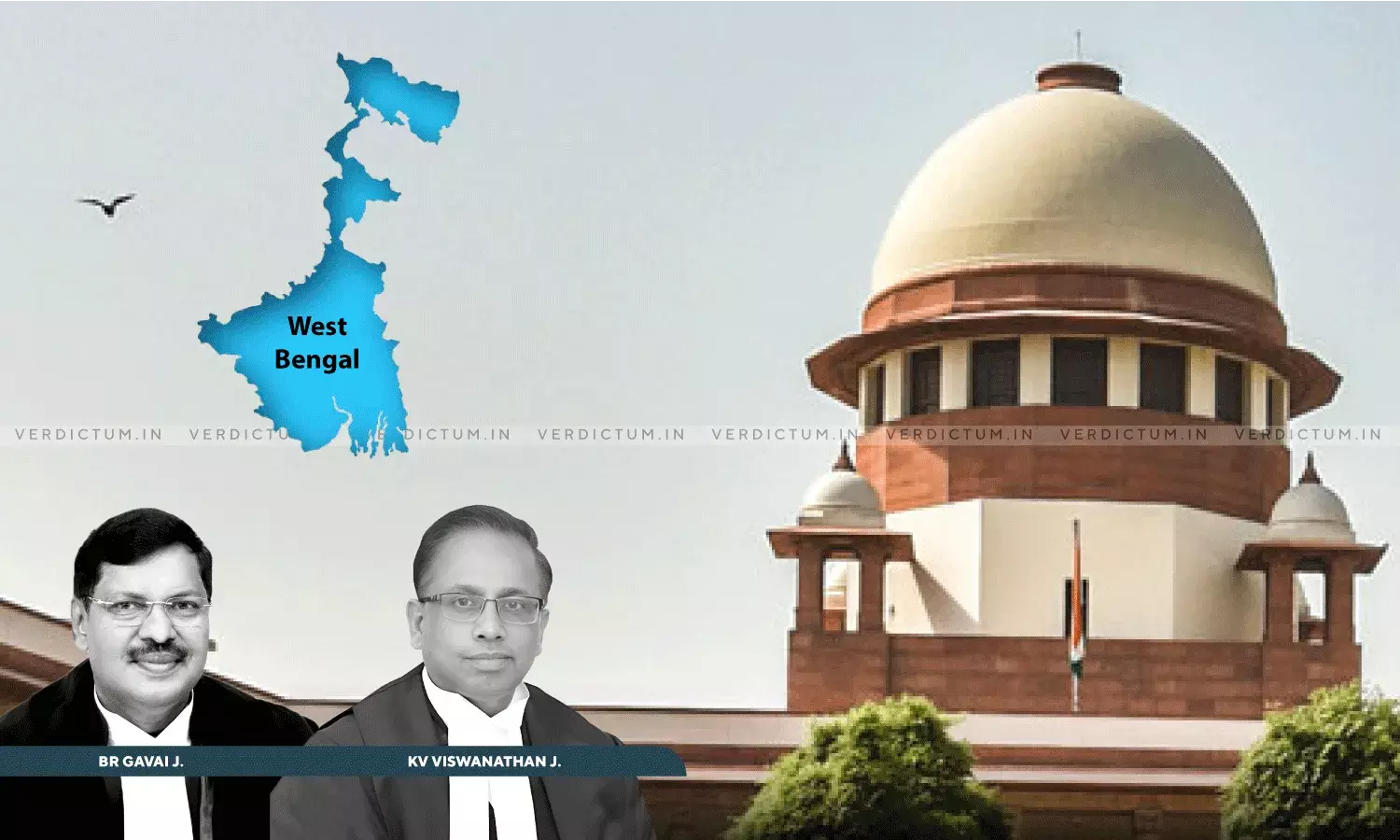"Reservation Cannot Be Based On Religion": SC Observes While Hearing West Bengal's Plea Against Striking Down Of OBC Reservation For Muslims
The Supreme Court on Monday emphasized that reservation cannot be granted on the basis of religion while hearing a batch of pleas challenging the Calcutta High Court’s May 22 verdict. The High Court had struck down the OBC status of several communities among Muslims in West Bengal that were included in the list since 2010, deeming the reservations unlawful.
The Bench of Justice B R Gavai and Justice K V Viswanathan was hearing the batch of petitions, which included a petition filed by the West Bengal government.
During the hearing, Senior Advocate Kapil Sibal appeared for the State, Senior Advocate Rakesh Dwivedi appeared for the West Bengal Commission for Backward Classes and Senior Advocates P. S. Patwalia, Guru Krishnakumar and Ranjith Kumar appeared for the respondents.
The Court said it would not be able to hear the matter today and asked Counsel to provide an overview of the matter.
Sibal argued that the reservations were based on social and economic backwardness, not religion. "The State of West Bengal has a minority population of about 28 per cent, out of which, more than 27 per cent are Muslims. Ranganath Commission, in its recommendations, recommended that 10 per cent reservation should be there for Muslims. As far as the Hindu communities are concerned, there were 66 communities that were classified as backward. Now the question arose as to what is to be done qua the reservations to Muslims. So the Backward Commission took upon itself that task and identified 76 communities to be classified as backward and a large majority of them are included in the Central List before this classification. That also has been struck down. So 44 of them are within the central list and a certain number of them are also part of the Mandal Commission. The balance are part of "Hindu counterparts in SC/ST and OBC" and the last category- in the neighbouring states. This makes up 76", Sibal argued.
Sibal further submitted, "The Commission has done this exercise. Unfortunately, the High Court has struck it down, heavily relying upon the Andhra (Andhra Pradesh High Court) Judgment where the 4 per cent reservation was there for Muslims. That Judgment has been stayed by this Court and that matter is pending before this Court. Whether or not Muslims are entitled to classification or not has been stayed and that reservation is continuing in Andhra Pradesh. The High Court here relied heavily on that Judgment. That is the issue".
Justice Gavai stated that "reservation cannot be on the basis of religion."
"That is what the argument is, which has been stayed by this Court in the Andhra matter", Sibal replied.
Sibal countered, asserting that the classification was rooted in backwardness rather than religion. Sibal also requested an interim stay on the High Court's decision, highlighting its impact on thousands of students aspiring for admissions and individuals seeking public sector employment.
"This is not on the basis of religion. This is on the basis of backwardness, not on the basis of religion, which your lordships have upheld. Even amongst the Hindus, it is on the basis of backwardness. Backwardness is common to all sections of society, not matter which religion they belong to. It is also true for Christians. The ground of religion is not the issue here. It happens that they belong to a religious community, but they are backward. That is the question your lordships will have to decide", Sibal submitted.
The Court then said that it would hear detailed arguments on January 7, 2025.
Pertinently, on August 5, the Court had asked the West Bengal government to provide quantifiable data supporting the inclusion of new castes in the OBC list. The state was instructed to detail the consultations conducted, if any, with the state's backward classes commission before granting these reservations. The Court had also issued notice in a stay application filed in a petition challenging the judgment passed by the Calcutta High Court striking down the OBC reservations granted by the State of West Bengal between 2010 and 2012.
In the Judgment, which expressly stated that it is prospective, the High Court had held that from the date of the pronouncement of the Judgement, the citizens from 114 (77+37) OBC classes cannot be appointed under the State services or derive any other benefit of any reservation for the purposes of Article 16(4) of the Constitution until the Backward Classes Commission and the State conduct fresh exercise for the purposes of Article16(4), in accordance with law.
"This Court is of the view that the selection of 77 classes of Muslims as Backward is an affront to the Muslim Community as a whole. This Court’s mind is not free from doubt that the said community has been treated as a commodity for political ends. This is clear from the chain of events that led to the classification of the 77 Classes as OBCs and their inclusion to be treated as a vote bank", the High Court had held on the issue of reservation to Muslims based on religion.
Cause Title: The State Of West Bengal v Amal Chandra Das (Diary No. 27287/2024)




